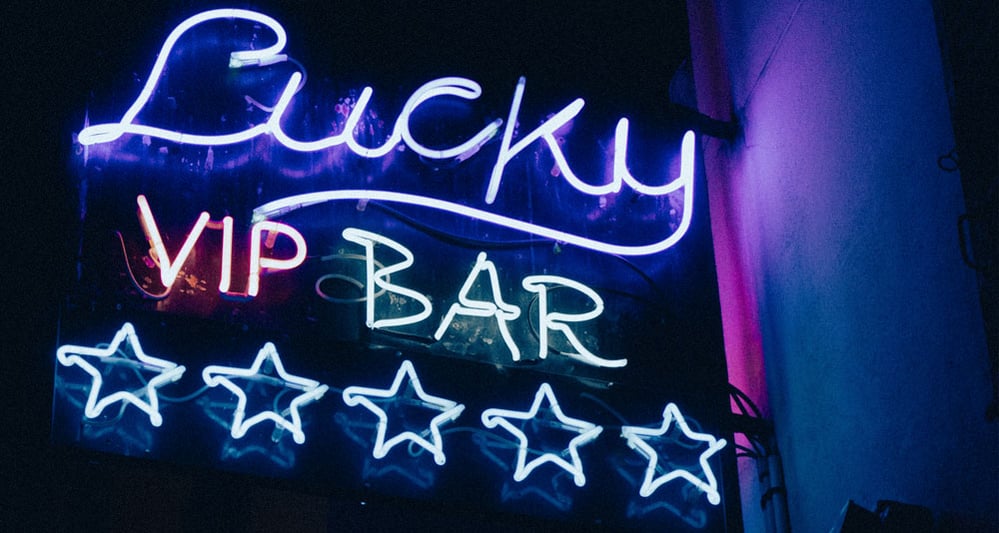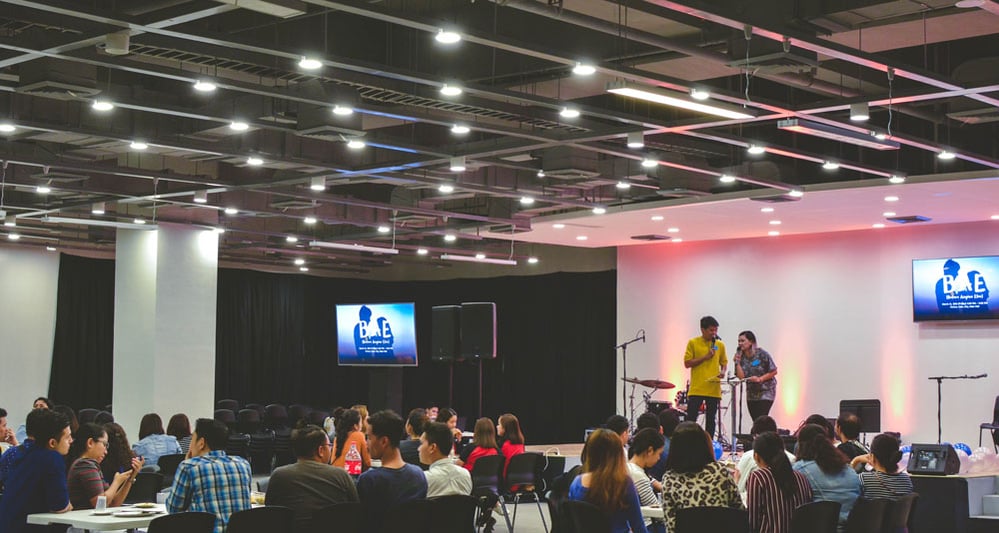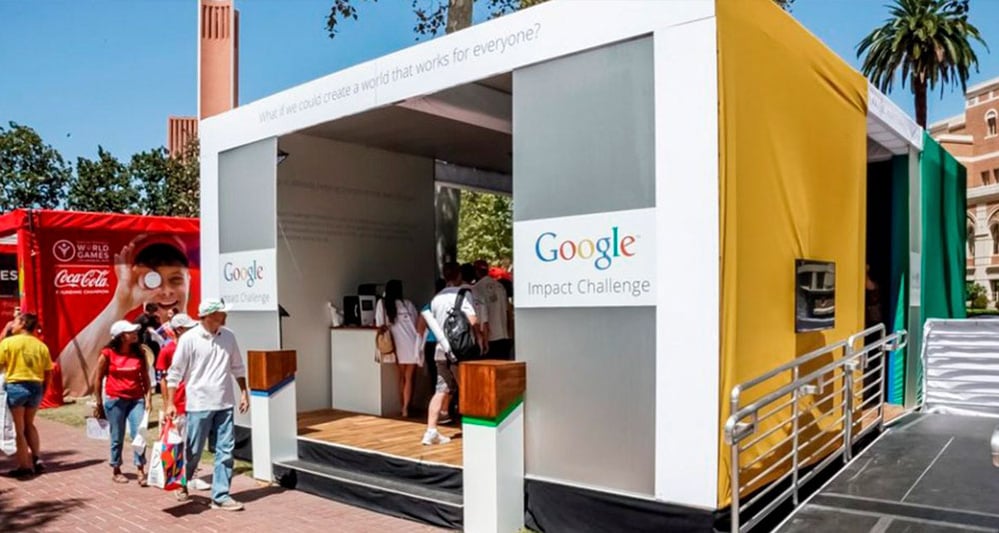5 Event Marketing Ideas to Get Seats Packed in 2023
While hosting a successful event requires careful planning and execution, it all goes to waste if you can't fill the seats. Social media plays a crucial role in event marketing. According to a report by EventMB, 97% of event marketers use social media to promote their events.
That's why event marketing is a vital component of any successful event. To help you get a head start on your event marketing strategy for 2023, we’ve compiled a list of five event marketing ideas that will create a buzz and get your seats packed. From running geo-targeted search and social campaigns to offering exclusive VIP packages, we've got you covered. Keep reading to learn how to create a memorable and successful event.
What is Event Marketing and Why is it Important?
Event marketing, also known as experiential marketing, is a form of marketing that uses memorable experiences to build relationships between brands and consumers. It helps create an emotional connection with the audience and encourages them to take action.
Event marketing works best when it’s tailored to the target audience and offers something unique they can't experience elsewhere.
1. Run Geo-targeted Search and Social Campaigns
In today's digital age, having a solid presence on social media to promote your event is essential. One effective way to reach a larger audience and make it easier for attendees to find information about your event is by using geo-targeted search and social media campaigns. Creating and using a conference hashtag consistently on all your search and social media campaigns will improve visibility.
Running geo-targeted ad campaigns will also help you reach potential attendees in specific geographic locations or with particular interests, increasing the chance of attracting attendees interested in your event.
Here's a step-by-step guide to help you run geo-targeted ad campaigns:
-
Define your campaign goals: Determine the purpose of your ad campaign. Are you trying to increase brand awareness, generate leads, or drive sales? Having clear goals will help you tailor your geo-targeting strategy accordingly.
-
Identify your target audience: Understand who your target audience is and where they are located. Consider factors such as demographics, interests, and purchasing behaviors. This information will guide your geographic targeting decisions.
-
Choose the right advertising platform: Select an advertising platform that allows you to run geo-targeted ads. Popular platforms like Google Ads, Facebook Ads, and LinkedIn Ads provide robust geo-targeting options.
-
Set up your campaign: Create a new campaign in your chosen advertising platform. Define your budget, ad format (text, image, video), and ad creative. Make sure your ad content is relevant to the targeted locations.
-
Define your geographic targeting parameters: Determine the specific locations you want to target. This can be as broad as targeting an entire country or as specific as targeting a particular city or ZIP code. Some platforms also offer options like radius targeting, where you can target a specific distance around a location.
-
Use location-based keywords: If you're using search engine marketing (SEM), incorporate location-based keywords in your ad copy. This will help improve the relevance of your ads to users searching for specific products or services in those locations.
-
Leverage location extensions: On platforms like Google Ads, utilize location extensions to include your business address, phone number, and directions within your ad. This is particularly useful if you have a physical store or local presence.
-
Monitor and optimize your campaign: Regularly monitor the performance of your geo-targeted ad campaign. Pay attention to key metrics such as click-through rates (CTR), conversions, and return on ad spend (ROAS). Make necessary adjustments to your targeting parameters, ad creatives, and bids to optimize your campaign's performance.
-
A/B test and refine: Conduct A/B testing to compare different ad variations and targeting strategies. Test different geographies, ad formats, messaging, and calls to action. Use the insights gained from these tests to refine your campaign and improve its effectiveness.
-
Analyze results and iterate: Once your campaign has concluded, analyze the results to identify successful tactics and areas for improvement. Use these insights to inform your future geo-targeted ad campaigns, making them increasingly effective over time.
Remember, it's crucial to comply with relevant privacy laws and regulations when collecting and using location data for your ad campaigns.
2. Offer an Elite VIP package
An exclusive VIP package is an effective way to attract high-end clients to your event. According to a survey by Eventbrite, 48% of millennials are willing to pay more for a VIP experience at an event.
By offering special privileges such as early access to the venue, exclusive seating areas, or special discounts on merchandise or food and drinks, you'll create an elite experience that attendees will remember.
The VIP package should include exclusive benefits unavailable to regular attendees, giving clients a sense of exclusivity and value. Additionally, hosting a pre-event networking event with key speakers and sponsors can be an added draw for VIP attendees. Offering this type of package can help you attract a high-end market that might have yet to consider attending the event otherwise, enhancing your event's image and reputation for years to come.
You can also hold a VIP networking event with key speakers and sponsors before or after the event.
3. Pre-Event, Day of Event, and Post-Event Marketing
Keeping the attendees engaged is vital to the success of any event. Pre-event, day-of-event, and post-event engagement ideas can help create a unique experience for attendees. Before the event, you can provide exclusive content such as videos, blog posts, or white papers relevant to the event's theme.
According to a report by Cvent, 66% of event organizers say sending personalized communications before the event is the most effective way to drive attendance.
During the event, offer discounts or giveaways to keep attendees engaged. Utilize post-event surveys to get feedback from attendees and suggestions for future events to improve the experience.
4. Try a Creative Event Promotion Idea
Standing out in a crowded market requires creativity when promoting your event. You can use AI tools to generate creative event promotion ideas so you always have promotional ideas for your events. By utilizing creative event promotion ideas, such as influencer marketing, video content, and social media contests, you can create buzz around your event and catch the attention of potential attendees.
Influencer marketing involves partnering with influencers in your industry and utilizing their reach to endorse and promote your event. Creating video content that showcases what to expect when attending your event or making testimonial videos from previous attendees can help build anticipation and excitement.
A social media contest that encourages attendees to engage with your event can increase excitement and foster connections among attendees. These creative ideas can help you set your event apart from the competition, generating a long-lasting and positive impression.
5. Utilize Event Marketing Strategies and Ideas
A successful event marketing strategy should consider the entire event lifecycle, from pre-event promotion to post-event engagement. Utilize tools such as Google Analytics and event apps to track engagement and monitor the success of your strategies.
Tailor your marketing strategy to the needs and interests of your target audience, and use data-driven insights to optimize your approach.
By creating an effective system that includes different stages and techniques, such as email marketing, word-of-mouth, and SEO optimization, you'll reach a wide range of potential attendees and keep them engaged throughout their journey with you.
Additionally, regularly revisit and adjust your strategy as required to ensure that you're staying up to date with the latest trends in the market and providing an exceptional experience for attendees.
Conclusion
Incorporating these five event marketing ideas can help boost attendance at your event in 2023.
These statistics highlight the importance of event marketing and its role in a company's overall success. While the effectiveness of specific marketing strategies may vary depending on the event and the target audience, incorporating innovative and creative marketing techniques can help increase attendance and generate a positive impression of your brand.
By running geo-targeted search and social media campaigns, providing engaging content, creating exclusive VIP packages, utilizing creative event promotion ideas, and creating a comprehensive marketing strategy, you can generate excitement, attract attendees, and increase brand awareness.
Remember to track your success, optimize your approach based on data-driven insights, and be creative in your marketing endeavors. With these five event marketing ideas in your toolkit, your event will succeed in 2023 and beyond.

Author: Paul Aroloye
Paul Aroloye is the founder of PaulAroloye.com. He helps businesses rank on Google by creating high-quality SEO-optimized articles backed with excellent keyword research, helping them 10x their organic traffic on their websites/blogs. You can reach out to him here.






